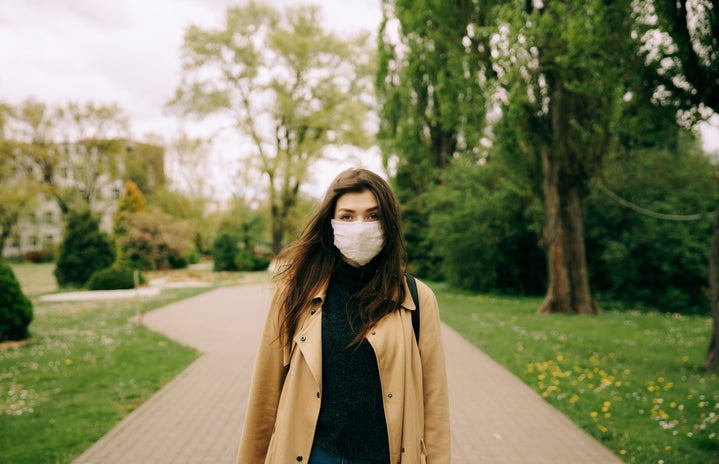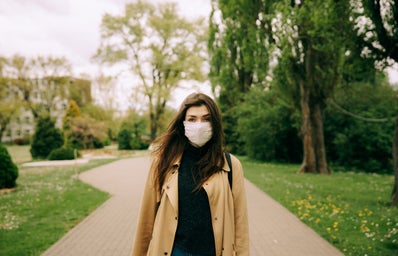With mask-wearing being the new norm now, people everywhere have been struggling with breaking out under their masks.
- Cleanse and moisturize
-
After spending so much time with a mask on your face, it’s important to use a cleanser to clean the surface of your skin, preventing all of that dirt buildup that contributes to your breakouts. After cleansing, make sure to use a moisturizer to keep your skin hydrated and protected. Make sure that your skincare doesn’t have a lot of fragrance and keep an eye out for some key ingredients like ceramides and hyaluronic acid that’ll do wonders for your skin. For moisturizers, be sure to get one that goes well with your skin type:
Oily skin (also for breakout-prone skin and hot/humid weather): Gel moisturizer
Normal or combination skin: Lotion
Dry: Cream moisturizer
- Wear the right mask
-
Besides the fact that a good-fitting mask will better protect you and others from coronavirus, the right mask can also help with your breakout problems. Make sure that your mask is a snug, but still comfortable, fit and has at least two layers of soft, natural fabric like cotton. A mask that is too tight can irritate your skin, and a loose mask makes you adjust it more, transferring more germs onto your skin. Be sure to avoid synthetic fibers (i.e. nylon, polyester, rayon, etc.) on the innermost layer of your mask that touches your face. Synthetic fibers are more irritating to the skin and cause more breakouts.
- Wash your cloth masks
-
Washing your mask is a vital step. It removes all the germs, oil, and skin cells that get stuck on the inside, which can cause skin problems if you don’t get rid of it all. Wash your mask by hand or in a washing machine with hot water (unless the instructions say otherwise), and with a fragrance-free soap or laundry detergent.
- Avoid irritating your skin whenever you can
-
This sounds like a no-brainer, but it might be harder than you think. This means no picking any pimples on your face, no harsh exfoliants, and no scrubs. Your mask is already irritating your skin enough and even though it’s tempting to amp up your skincare routine or pop all those zits, it won’t do you any good in the long run. Trying out new skincare products can irritate your skin more than it already is and just make your breakouts even worse. Exfoliating too hard or using a rough scrub can put micro-cuts on your face, allowing more germs to get in (same with popping pimples!).
Wearing a mask and having the best skin can go hand-in-hand! It just takes a lot more attention and care, but it definitely is possible. Just remember these two important things: be gentle to your skin and wash your mask!


